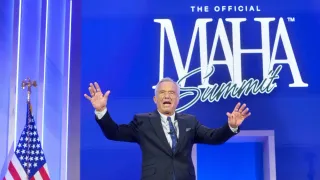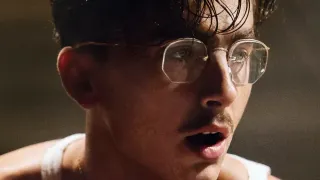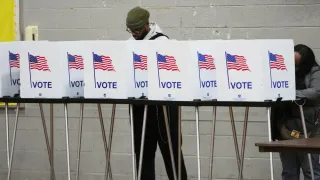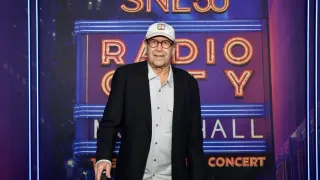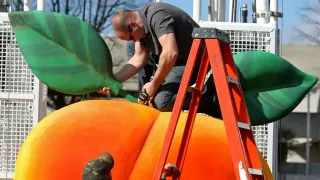Jan 10
Actor Grant Evan Explores Race, Class & Drag in 'Ain't No More'
Kilian Melloy READ TIME: 8 MIN.
EDGE: The show takes a sketch format. Do you feel like Peaches represents a through line, or is an anchor for the play?
Grant Evan: I've talked about this a lot with Dawn Simmons, our director, and one of the things that struck me in the structure of "Ain't No Mo'" is how much there is a through line of Black femmes and Black matriarchs. In each of the sketches there's discussion of Black motherhood and what it means for our community, what it means to have the feminine energy balancing a masculine energy, whether it's in our first sketch, which is "Circle of Life," at the abortion clinic, or it's in "Green," which is about a family and the decision that they make, and the mother being wholly absent from that environment, and what that did to the family structure.
Peaches is the only character who we see multiple times. She's the only one who we really get to launch into our journey and absolutely immerse ourselves in her journey. I think that she represents so much of that black, femme, matriarchal energy that is leading us and guiding us. I liken her to Moses in the Old Testament: She's a loud, brash, femme Moses who's like, "Get your shit together, and let's go. We have a place to be. We have to get into the promised land." So much of what she represents is a guiding force. That's what that feminine leadership and support system looks like.
EDGE: Like Moses, there's some question as to whether or not Peaches gets to enter that promised land.
Grant Evan: I think that Peaches represents so many of the Black femmes who are at the forefront of social justice and change. We've had so many opportunities to see what Black queer femmes, what our Marsha Johnsons, bring to a fight. Frequently, they are the ones who lead the charge in in liberation, and the price that they pay, frequently, is a self-sacrifice, whatever that means. Whether it's physically, whether that's with their families, whether that's financially, they are constantly the ones who suffer the most, even though they should be the ones who are most celebrated and advocated for. I think that Peaches is a great representation of what happens, and what can happen, to our most vulnerable when they are used to spearhead agendas.
